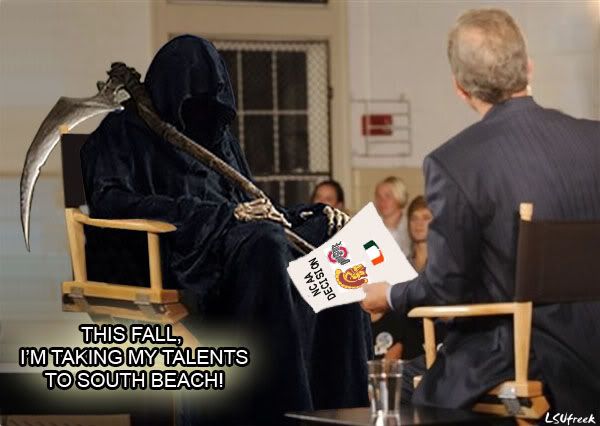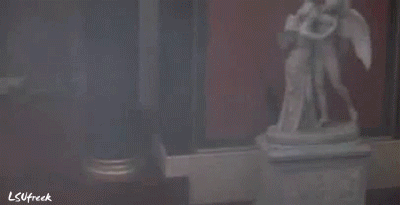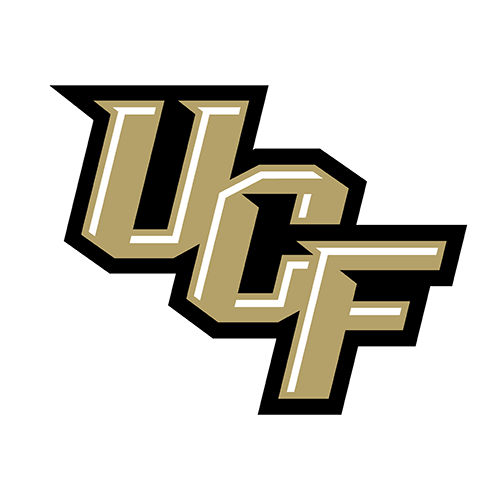Yeah, I'd say in the corporate world, in most instances, there's a tremendous cost to the actual individual who engages in wrongful conduct. Corporations can, in fact, educate and threaten and get results because they have real leverage -- they can fire an employee that engages in wrongful conduct.
I dunno -- I just don't see the same leverage in this situation. The Universities are tasked with 24/7 responsibility for kids that, frankly, see little wrong with taking money and face almost no repercussions if caught doing so. The only way something bad happens to them is if they're still in school. Even then, in a lot of instances you're dealing with dirt poor kids who, frankly, would risk expulsion for $1000 given the likelihood that they'd ever get caught prior to leaving the University. And boosters are even less deterrable.
Getting back to your corporate example, I think it would be akin to a huge corporation trying to enforce a strict no-drinking at ALL times policy. How can you ever enforce that? I mean, you can follow employees around to make sure they don't go to bars, but eventually they're in their own homes and you just can't know what they're doing. I suppose you could test them every day or something, but one the whole, I think it's unrealistic. And I know a number of companies have anti-drug policies and random testing, but, in my experience, that's not much of a deterrent. Heh.
Universities ought to be held to strict standards when it comes to academics and academic fraud -- that's something that they have a ton of control over. They ought to be held to strict standards when it comes to addressing known conduct. But I'm not willing to hammer them for a failure to PREVENT the bulk of the types of conduct that the NCAA prohibits -- free drinks, free stuff, improper handshakes...and so forth.
I dunno -- I just don't see the same leverage in this situation. The Universities are tasked with 24/7 responsibility for kids that, frankly, see little wrong with taking money and face almost no repercussions if caught doing so. The only way something bad happens to them is if they're still in school. Even then, in a lot of instances you're dealing with dirt poor kids who, frankly, would risk expulsion for $1000 given the likelihood that they'd ever get caught prior to leaving the University. And boosters are even less deterrable.
Getting back to your corporate example, I think it would be akin to a huge corporation trying to enforce a strict no-drinking at ALL times policy. How can you ever enforce that? I mean, you can follow employees around to make sure they don't go to bars, but eventually they're in their own homes and you just can't know what they're doing. I suppose you could test them every day or something, but one the whole, I think it's unrealistic. And I know a number of companies have anti-drug policies and random testing, but, in my experience, that's not much of a deterrent. Heh.
Universities ought to be held to strict standards when it comes to academics and academic fraud -- that's something that they have a ton of control over. They ought to be held to strict standards when it comes to addressing known conduct. But I'm not willing to hammer them for a failure to PREVENT the bulk of the types of conduct that the NCAA prohibits -- free drinks, free stuff, improper handshakes...and so forth.





Comment